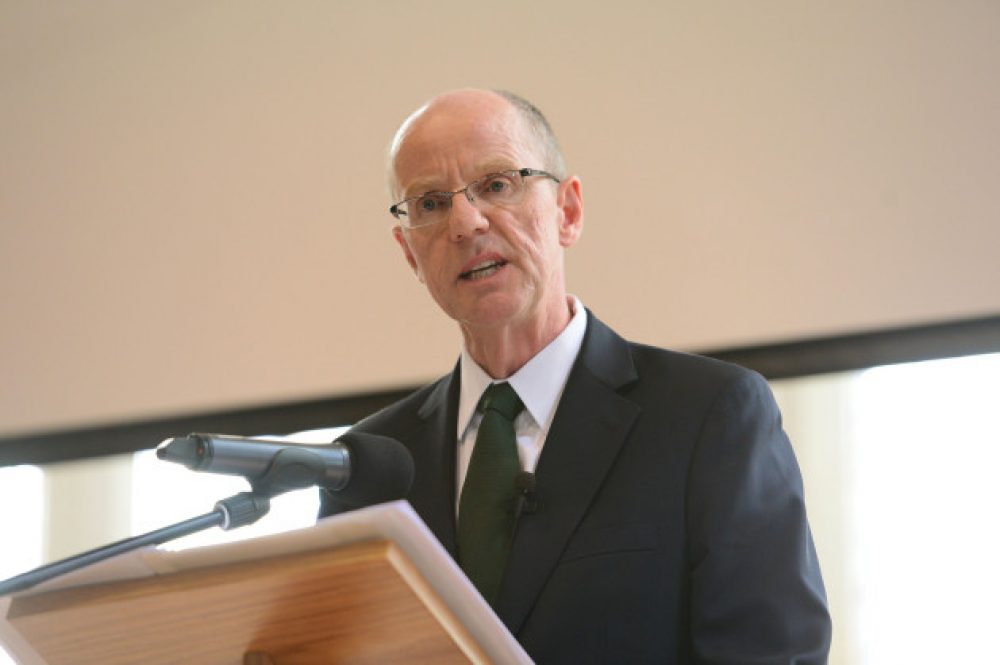The headline GCSE pass rate has fallen by almost five percentage points this year, new figures from the Department for Education (DfE) show.
The provisional statistics, released this morning [see National Tables, table 1a], show that 55.9 per cent of state school pupils at the end of key stage four achieved the benchmark measures of five A*-C grades including English and maths, following a toughening up of league table rules. That was down on the 60.6 per cent who achieved the same results the previous year.
The results mean more schools are likely to have fallen before the government’s floor target of 40 per cent of pupils achieving good GCSE passes.
Reforms brought in after a review by Professor Alison Wolf for the government have had two major effects on how this year’s results are produced.
Under the new measures, only pupils’ first attempt at many qualifications count, in an attempt to reduce gaming, with students entering for exams multiple times.
Additionally, the reforms have led to a capping of the impact of some non-GCSE subjects on performance tables.
The DfE has attempted to strip out the impact of the Wolf reforms, which also shows a fall in the headline measure. Using this ‘2013 methodology’, 59.6 of students achieved five A*-C grades including English and Maths, versus the 60.6 per cent seen the previous year.
This proxy measure removes the impact of the early entry and alternative qualification reforms, but a note accompanying the release said that changes in behaviour from schools – for example in when they entered students for exams – would have had an effect here.
Additionally ‘unregulated iGCSEs’ have not been counted in this measure, unlike in previous year’s results.
There is also likely to be a cohort effect, due to natural variations in the students taking exams in the two years.
In an article for the Telegraph, Schools Reform Minister Nick Gibb (pictured) said the drop in headline results would “inspire confidence”, though he acknowledged that it may look “odd for an education minister to extol the virtues of a drop in the national pass rate of those achieving the benchmark number of GCSE passes”.
The DfE said the proportion of students that had achieved the EBacc had increased this year increased by 1.1 percentage points to 23.9 per cent. To gain an EBacc, a student must achieve a C or better in English, maths, two sciences, history or geography, and a language.
Education Secretary Nicky Morgan said: “I am delighted to see more and more young people taking the high quality subjects that will properly prepare them for life in modern Britain.”
At A-level, the number of pupils getting A* and A has fallen to 26.4 per cent. It reached a high of 27.2 in the 2010/11 academic year.
Again, changes mean this year pupils have not entered into exams for AS and A-level in January. The DfE acknowledges this could have impacted on pupils’ performance.
However, the proportion of pupils taking facilitating subjects – which the Russell Group universities claim to prefer – also rose by 1.1 percentage points from 53.9 per cent to 54.9 per cent.
The DfE said: “The drop in A* and A grades could be attributed to more exam entries in facilitating subjects than non-facilitating subjects; the proportion of exam entries in facilitating subjects has grown every year since 2005/06.
“In addition, the move to linear A level exams in 2013/14 may have contributed to the decline.”
The gap between boys and girls achieving A* and A has continued to fall, with it narrowing to just 0.2 percentage change, as the number of girls achieving top grades drops.
The DfE says that the “shift in preference towards facilitating subjects over non-facilitating subjects could be a factor in the recent decline in top grades achieved by females”.


Your thoughts